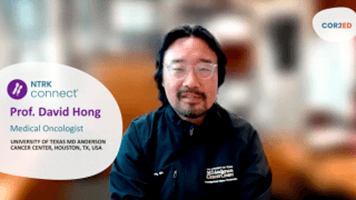
How to use combination, sequential and immuno-oncology therapies in mCRPC?
How to use combination, sequential and immuno-oncology therapies in mCRPC?
Prof. Evan Yu
Professor of Medicine Evan Yu and Associate Professor Tanya Dorff provide their thoughts and views on combination, sequential and immuno-oncology therapies in mCRPC (Metastatic Castration-Resistant Prostate Cancer)
Prof. Evan Yu
Medical Oncologist
University of Washington and Seattle Cancer Care Alliance
United States (US)
Prof. Evan Yu has received financial support/sponsorship for research support, consultation, or speaker fees from the following companies:
|
5 min
|
2017
This programme was made for you: your opinion matters
Share your feedback in just 4 clicks and help us to continue to create the content you need.
I agree that this educational programme:
Was valuable to me:
1/4
Has improved my knowledge of this topic:
2/4
Is likely to change my clinical practice:
3/4
Was balanced and unbiased:
4/4
download resources
This programme was made for you: your opinion matters
Share your feedback in just 4 clicks and help us to continue to create the content you need.
I agree that this educational programme:
Was valuable to me:
1/4
Has improved my knowledge of this topic:
2/4
Is likely to change my clinical practice:
3/4
Was balanced and unbiased:
4/4
The background of combination immunotherapy
In this video and accompanying slides Prof. Evan Yu and Prof. Tanya Dorff address how to treat metastatic castration-resistant prostate cancer (mCRPC) using combination and sequential immuno-oncology therapies. Prof. Yu discusses immuno-oncology in prostate cancer and details the need for combination therapies. Explored are current prostate cancer immunotherapy treatments such as Sipuleucel-T, and other IO treatments approved in other cancers and being investigated in prostate cancer. These include PD1 antibodies and PD-L1 antibodies. Prof. Yu describes a study examining the effect of enzalutamide treatment on PD-L1/2 tumor staining, and how this may be relevant for treating subpopulations of patients. Presented are data using the PD1 binding antibody, pembrolizumab, to treat PD-L1 positive prostate cancer.
The influence of mutational profile on immunotherapy response
Further discussion focuses on the prediction of solid tumour responsiveness to immunotherapy based on the mutational profile. Examined are mismatch repair with microsatellite instability (MSI) and DNA repair gene alterations in prostate cancer as a consideration for immunotherapy treatment. Also covered are the KEYNOTE 365 clinical trial which examines pembrolizumab in combination therapies with a number of different therapies in mCRPC, and ongoing trials in immunotherapy with focus on combination therapies. The slide-set concludes with a look at immunotherapy for the non-inflamed phenotype and how that can be addressed with immune priming strategies. Watch the video and download the slides to benefit from this practical guidance for medical oncologists.
GU CONNECT is an initiative of COR2ED, supported by an Independent Educational Grant from AstraZeneca, Bayer and Eisai Europe Limited.


























